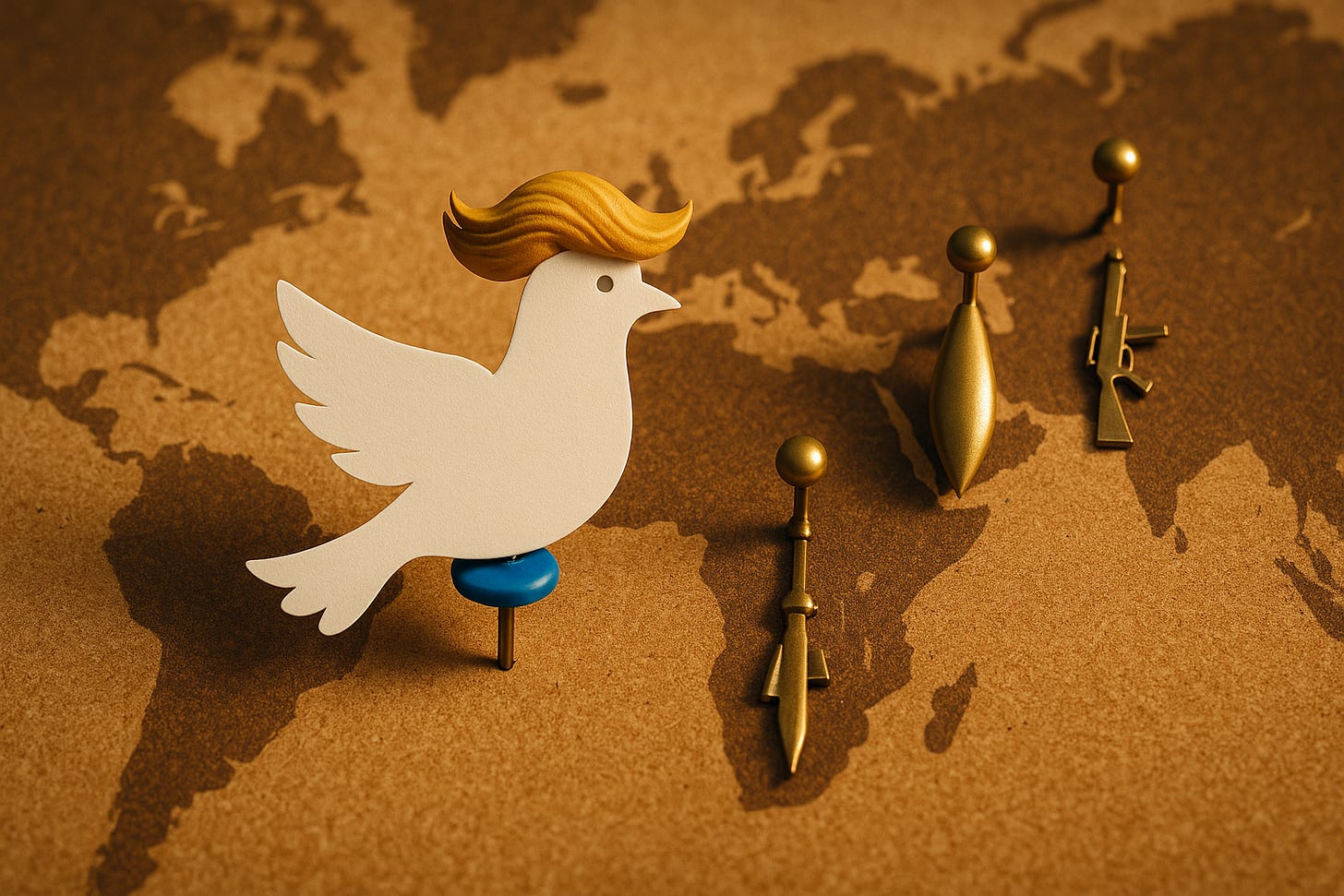Pax Trumpiana? I Think Not
PR Wins, Pressure, and Bombs for Thin Deals
The orders have gone out: find Trump some peace deals.
Trump’s well-known desire to win a Nobel Peace Prize remains unfulfilled. He claims he earned it with the Abraham Accords, but the Nobel Committee has disagreed. Now, in his second term, he has made clear that peace—anywhere, anyhow—is the goal. The administration is scouring the globe for quick wins and splashy announcements. While this could be a noble pursuit, in practice it often means postponing conflict, distorting peace, and leaving instability simmering beneath the surface. Carter earned a Nobel for Camp David; Obama received his for hope. Trump appears to want his for spectacle—whether delivered by the end of a bomb or through economic coercion. Let’s take stock of what he’s managed and what it means.
Iran–Israel: Peace at the Point of a Gun. The 12-day war between Israel and Iran ended with U.S. and Israeli airstrikes on Iranian nuclear facilities, setting Tehran’s weapons program back, maybe, several years. Iran has not d…



